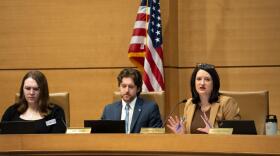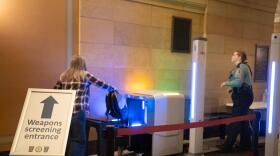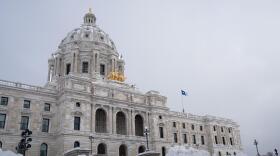-
-
Conservationists and wildlife enthusiasts are pleading with the public to demand that protections in the BWCAW concerning mining interests stay in place, with a key vote in Congress pending.
-
In December 2025, federal prosecutors announced new charges in a widespread Medicaid fraud investigation, leading to new political turmoil about who was at fault and what should be done.
-
The public is invited to fill out an online survey as the state's judicial system works to update its strategic plan, which is updated every two years.
-
The first day of the new session on Feb. 17, 2026, was the first time in 20 years Rep. Melissa Hortman was absent. She, her husband and their dog were killed in June 2025.
-
Election year ambitions and heightened partisan vitriol are undermining hope for the bipartisan comity needed to pass anything in the closely divided Legislature.
-
Minneapolis businesses are estimated to have lost $10 to $20 million in sales each week of Operation Metro Surge, which began in December 2025.
-
The unprecedented federal incursion brought 1000s of immigration officers to MN over the objections of local Democratic leaders, and led to massive protests and two deaths.
-
Recent court decisions have given the Trump administration room to carry out its controversial actions, but legal experts point to ICE consistently ignoring release orders, drawing admonishment from judges.
-
The 2022 candidate for governor performed poorly in last week’s GOP precinct caucus straw poll for governor and was trailing in donations.
-
Participants can vote once and select up to eight winning names through noon Feb. 13, 2026. The agency selected 30 finalist names from more than 6,700 submissions.
-
The idea was an agreement that would allow ICE up to 48 hours to pick up undocumented individuals targeted for immigration enforcement to cooperate more fully with federal authorities.
















